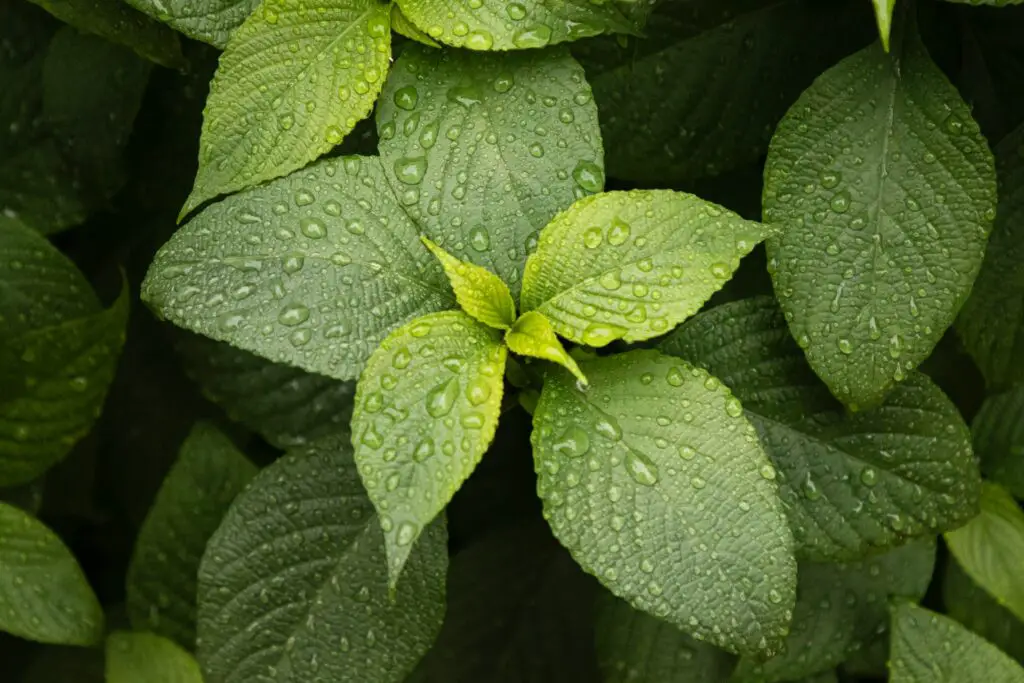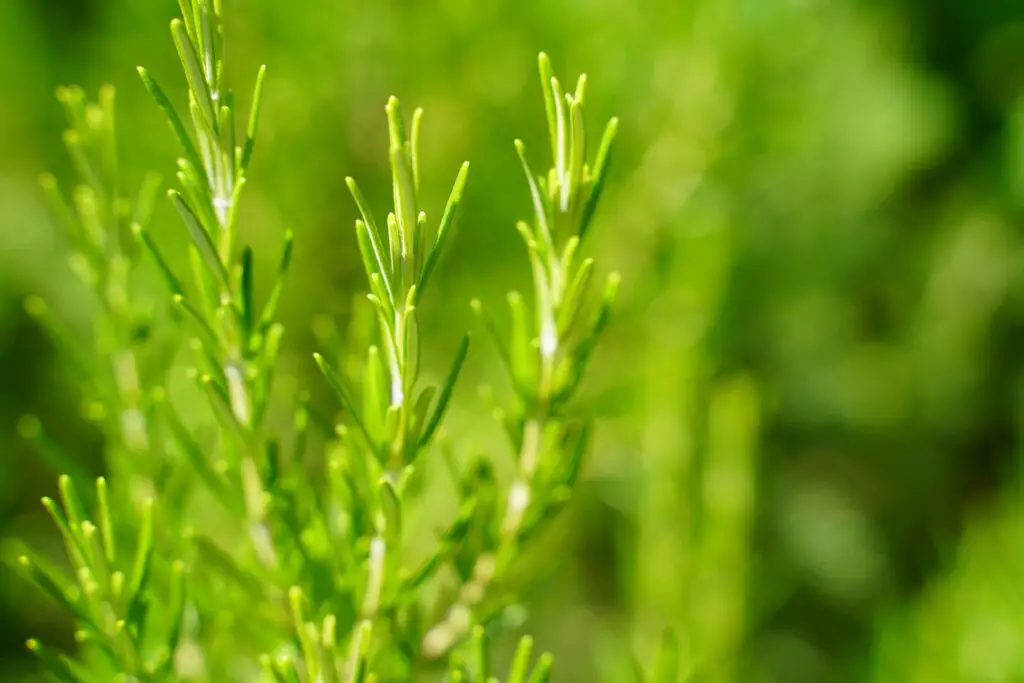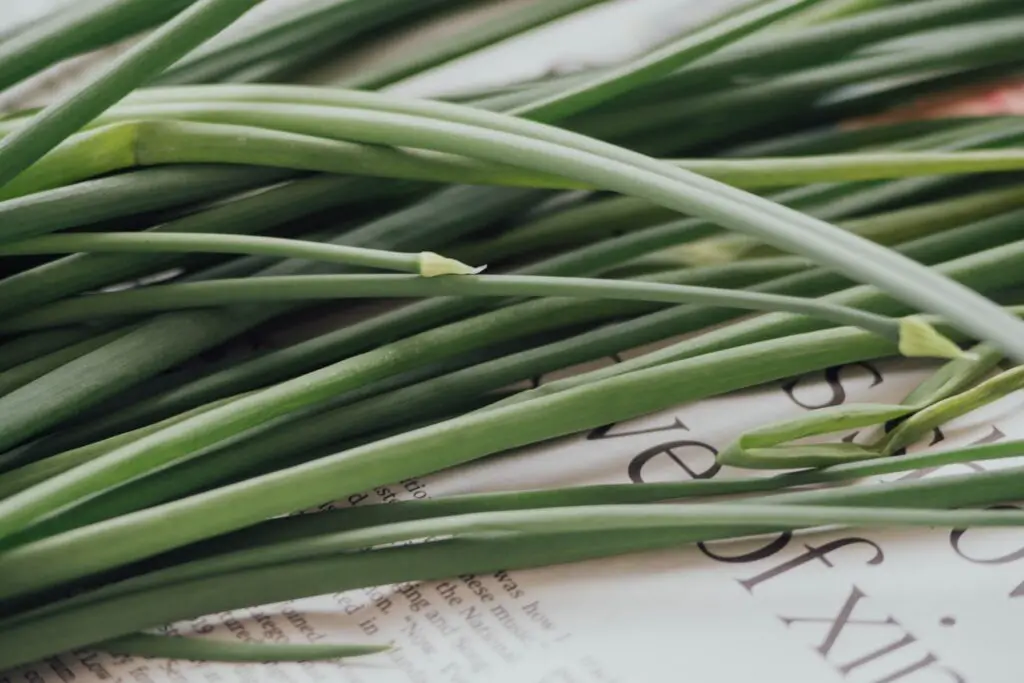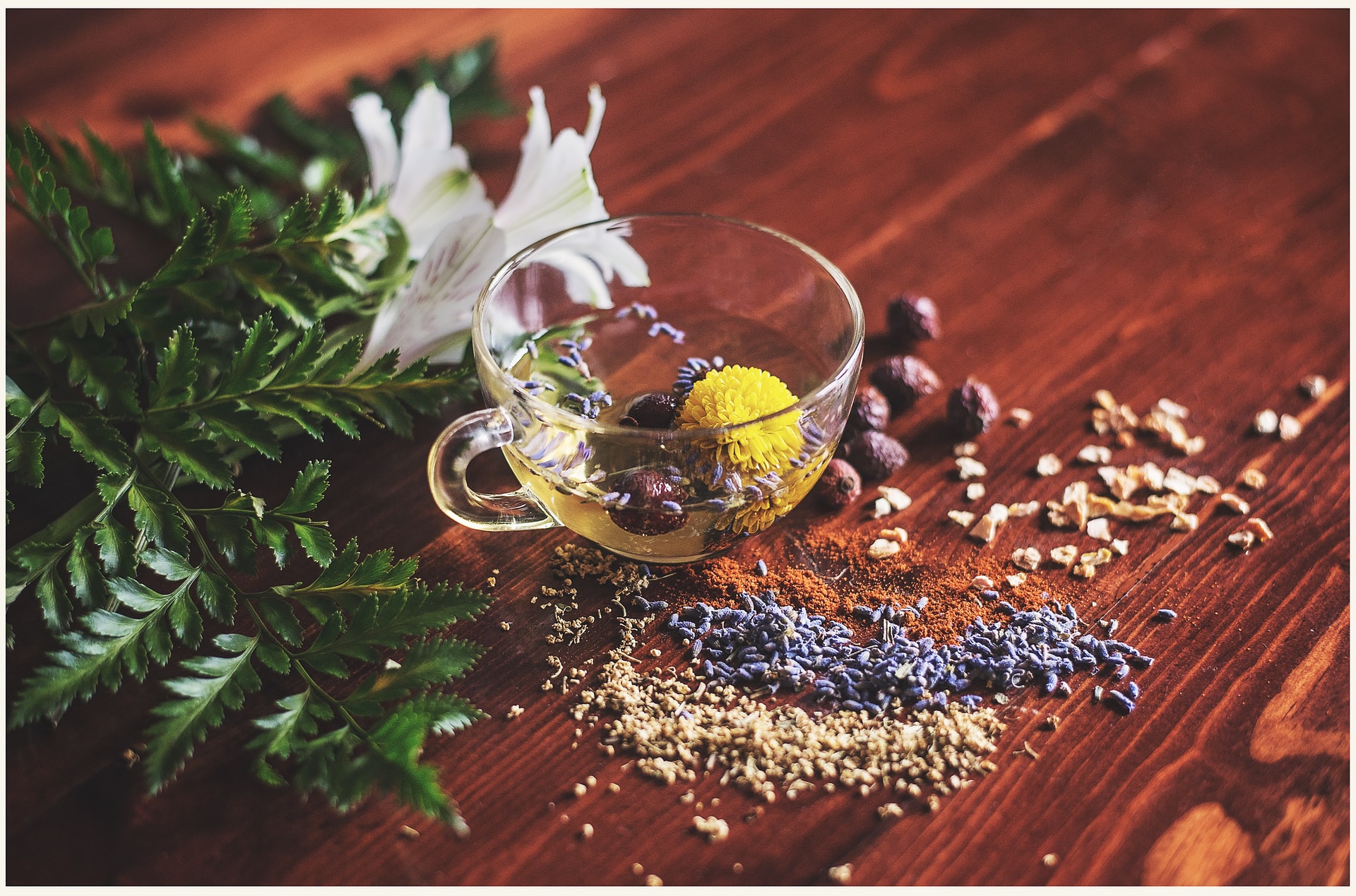In the past, tonsil stones were usually just a minor annoyance that people had to put up with. Nowadays though as bacteria grows resistance to modern medication, many are turning back towards natural remedies like herbs in order find relief from oral ill-health.
Here are 6 awesome herbs for tonsil stones and bad breath:
- Lavender
- Eucalyptus
- Mint
- Thyme and origanum
- Tea tree
- Lemongrass
Tonsil stones and bad breath are really unpleasant, aren’t they? Well luckily I have the perfect solution for you! In this article we’ll look at 6 herbs that can help fight or prevent these conditions.
1. Lavender

Lavender is an ancient curative and disinfectant. Historical evidence suggests Ancient Romans, Greeks, and Persians used lavender for their medicinal and antiseptic qualities. Of the 47 flowering plants of the mint family, Lamiaceae , Lavandula angustifolia
, Lavandula angustifolia is the most widely grown and utilized species in essential oils and their medicinal and curative effect.
is the most widely grown and utilized species in essential oils and their medicinal and curative effect.
The two major constituents of lavender oil are linalool and linalyl acetate
and linalyl acetate which are popular in aromatherapy.
which are popular in aromatherapy.
- Linalool is a terpene alcohol that naturally occurs in many flower species.
- Linalyl acetate is the ester of linalool (the result of alcohol and acid reacting to form an ester and water mix.)
More so than their aromatherapeutic properties, linalool and linalyl acetate have proven antimicrobial action against foodborne bacteria, which has implications in its curative effects for tonsil disease and conditions such as tonsil stones.
The main factors that make this particular herb so effective in tonsil health are:
- Besides the antimicrobial action of linalool, compounds such as limonene, α-pinene, and β-pinene also show antibacterial activity against pathogenic or harmful bacteria in the oral cavity
 .
. - Clinical studies show
 that lavender oil affects Staphylococcus aureus, a proven catalyst in tonsillar disease, and chronic tonsillitis, a primary causative factor in the development of tonsil stones.
that lavender oil affects Staphylococcus aureus, a proven catalyst in tonsillar disease, and chronic tonsillitis, a primary causative factor in the development of tonsil stones. - Combined with these potential oral health benefits, lavender may be an anti-inflammatory agent and boost mood and heal minor wounds.
How To Use Lavender
Lavender essential oil, in contrast to the plant form, is toxic when swallowed. There are some lavender-based mouthwashes available such as the After69 All-Natural Oral Spray which has great reviews (available on Amazon).
which has great reviews (available on Amazon).
However, as essential oils may be harmful unless specifically created for oral ingestion, you may create a lavender tea to improve your oral health.
Lavender Tea Recipe
- Take half a teaspoon of dried lavender and place in an 8 ounce (236.59 mL) teacup.
- Boil water thoroughly and let it cool slightly.
- Pour 6 ounces (177.44 mL) of water over the lavender leaves and allow to steep for several minutes.
- Strain the leaves and enjoy as mouth rinse or tea.
2. Eucalyptus

Eucalyptus oil comes from the leaf of the eucalyptus, from the family Myrtaceae indigenous to Australia. Before the western world noticed its curative properties, the Australian aboriginals had long used the herb for its curative effects on fever, sore throats, and colds.
indigenous to Australia. Before the western world noticed its curative properties, the Australian aboriginals had long used the herb for its curative effects on fever, sore throats, and colds.
Additionally, eucalyptus has various components that collectively treat the bacterial and fungal activities that may lead to oral disease and bad breath. The main curative ingredient of eucalyptus is called Cineole, a natural monoterpene with several medicinal properties that you may use to affect oral health.
These properties include:
- Cineole is a mucolytic
 which means that it helps break up and thin mucus from the airways. So eucalyptus can break down the mucus and mucus build-up that’s part of the debris that collects in the tonsillar crypts to form tonsil stones
which means that it helps break up and thin mucus from the airways. So eucalyptus can break down the mucus and mucus build-up that’s part of the debris that collects in the tonsillar crypts to form tonsil stones - Eucalyptus oil has antibacterial and antimicrobial properties
 that are effective against pathogenic bacteria, including Staphylococcus aureus implicated in tonsil disease and chronic tonsillitis.
that are effective against pathogenic bacteria, including Staphylococcus aureus implicated in tonsil disease and chronic tonsillitis. - Eucalyptus oil has anti-inflammatory properties and stimulates the body’s immunity to help fight bacterial invasion.
How To Use Eucalyptus
It’s dangerous to consume eucalyptus orally, with even 3.5ml (0.12oz) being potentially fatal . Many safe and tested types of mouthwash use the eucalyptus essential oil as an ingredient, such as Listerine
. Many safe and tested types of mouthwash use the eucalyptus essential oil as an ingredient, such as Listerine .
.
Listerine has clinical studies that support the efficacy of their product, unlike many brands on the market.
that support the efficacy of their product, unlike many brands on the market.
You may also make eucalyptus tea at home, using the leaves and not eucalyptus oil as essential oils may be volatile and produce side effects.
Eucalyptus Tea Recipe
- Take 1 teaspoon of dried eucalyptus leaf and add to an 8 ounce (236.59 mL) tea cup.
- Boil water thoroughly and allow it to cool slightly.
- Pour 6 ounces (177.44 mL) of water over the dried leaves and allow to infuse for several minutes.
- Strain loose leaves and use as gargle or drink as a tea.
3. Mint

One of the oldest Egyptian medical texts in existence from 1550 BC lists mint as a curative for digestive health . Peppermint or Mentha Piperita is a hybrid mint created from spearmint and watermint. It is also a popular ingredient in health care products for its breath refreshing qualities, but it goes further than just freshening your breath.
. Peppermint or Mentha Piperita is a hybrid mint created from spearmint and watermint. It is also a popular ingredient in health care products for its breath refreshing qualities, but it goes further than just freshening your breath.
Peppermint contains active ingredients of menthol, responsible for most of the bioactivity of peppermint as well as other terpenes, menthone, and menthyl acetate that improves oral health and inhibits bacterial growth.
Although case studies show conflicting results, peppermint has shown promising results in:
- Inhibiting the growth of pathogenic bacteria such as Streptococcus mutans
 .
. - Mint increases salivation
 reduces dry mouth effects on both halitosis and tonsil stone formation.
reduces dry mouth effects on both halitosis and tonsil stone formation. - Mint oil significantly reduces biofilm formation and corresponding volatile sulfur compounds.

How To Use Peppermint
Peppermint oil may cause allergic reactions, and pregnant and breastfeeding women should use it with care. A great vegan alternative that’s safe to consume is the Nature’s Answer Peppermint Mouthwash (available on Amazon.com). However, as essential oils may be harmful, you may opt for a peppermint tea for its curative effects.
Peppermint Tea Recipe
- Add four to five mint leaves to a standard tea pot.
- Boil water thoroughly and allow it to cool slightly.
- Add two cups of boiled water to the pot and allow the leaves to steep for several minutes.
- Strain into a cup or mug and enjoy as a mouth rinse or tea.
4. Thyme Oil and Origanum

Origanum and thyme are another essential member of the mint family Lamiaceae , long known for their medicinal and curative effects. Most commercial thyme is of the Thymus zygis or Thymus vulgaris strains which contain natural terpenoid thymol and carvacrol, which are also components of origanum.
, long known for their medicinal and curative effects. Most commercial thyme is of the Thymus zygis or Thymus vulgaris strains which contain natural terpenoid thymol and carvacrol, which are also components of origanum.
Both plants show high antimicrobial qualities and their inhibiting effect on foodborne pathogens, as well as antioxidant properties. Clinical studies show that thymol and carvacrol also prevent oral diseases by:
- Significantly inhibiting biofilm development of S.mutans.
- It affects inhibition and disruption of bacterial growth in the oral cavity.
How To Use Thyme and Origanum
Thyme may cause allergic symptoms, and there isn’t enough reliable information to ensure its safe oral consumption. You may try the water soluble Oregavit Wild Oil of Oregano Oil
and there isn’t enough reliable information to ensure its safe oral consumption. You may try the water soluble Oregavit Wild Oil of Oregano Oil or the vegan Heritage Store Alka-Thyme
or the vegan Heritage Store Alka-Thyme (both available on Amazon.com).
(both available on Amazon.com).
However, as essential oils may cause harm unless specified by a medical professional, you may opt to make your own brew.
Origanum Tea Recipe
- Boil a cup of water thoroughly, and allow to cool slightly.
- Pour over two teaspoons of dried origanum through a tea strainer.
- Allow the mixture to steep for 2-4 minutes.
- Remove the strainer and sip or gargle the tea.
Thyme Tea Recipe
- Add several sprigs of fresh theme to a cup of boiled water.
- Leave for five to eight minutes to infuse.
- Strain any loose leaves if you wish.
- Enjoy as tea or mouthwash.
5. Tea Tree

This ancient curative is a potent force in oral care and eliminates bacterial growth associated with tonsil stones and bad breath. Melaleuca alternifolia is a tall shrub or tree species in the myrtle family and is indigenous to Australia. Tea tree oil affects a broad-spectrum antimicrobial action mainly due to terpinen-4-ol.
Besides its antimicrobial activity, tea tree oil showed a significant effect on oral health by:
- Suppression of biofilm development.
- Antibacterial action against 161 isolates of oral bacteria, many of which release volatile sulfur compounds
 .
. - The results of tea tree oil antibacterial action last longer in the mouth and saliva than chlorhexidine (5 weeks).
How To Use Tea Tree
Tea tree oil may be toxic if swallowed, so you should never use it undiluted or consume the oil.
You can make your mouthwash to harness the effects of tea tree oil in your mouth. To do this:
- Mix one drop of tea tree oil with a cup of warm water that you have boiled and cooled.
- Swish and gargle the mixture for 30 seconds.
- Ensure you spit out the solution after using it.
6. Lemongrass

Lemongrass is an herb that belongs to the grass family of Poaceae. Cymbopogon citratus oil is an ancient remedy for conditions as diverse as cholesterol, hypertension, stomach ailments, rheumatism, and periodontal diseases. Some studies show that lemongrass shows antibacterial and microbial effects that compare to penicillin.
show that lemongrass shows antibacterial and microbial effects that compare to penicillin.
The active ingredients on lemongrass oil are citronellol and geraniol, and its high citral content with antimicrobial antibacterial and volatile sulfur compound reducing qualities. Oral health benefits include:
- Citral in lemongrass oil is highly effective against bacterial growth
 , such as methicillin-resistant Staphylococcus aureus (associated with chronic tonsillitis)
, such as methicillin-resistant Staphylococcus aureus (associated with chronic tonsillitis) - Lemongrass oil shows an inhibiting effect on biofilm development
 .
. - Double-blind studies
 showed that lemongrass had a higher reduction in the plaque index than 0.2% Chlorhexidine.
showed that lemongrass had a higher reduction in the plaque index than 0.2% Chlorhexidine.
How To Use Lemongrass
Lemongrass oil may be toxic if swallowed and should only be ingested orally under the supervision of a medical professional.
However, a safe and tested lemongrass-based mouthwash is the Antigingivitis Aloe Vera Lemongrass Mouthwash . This product uses the natural antimicrobial qualities of lemongrass oil which can affect biofilms such as tonsil stone formation.
. This product uses the natural antimicrobial qualities of lemongrass oil which can affect biofilms such as tonsil stone formation.
Alternatively, you may make a lemongrass tea.
Lemongrass Tea Recipe
- Cut a lemongrass stalk into smaller 2 inch (5.08 cm) pieces in a cup.
- Boil a cup of water and let it cool slightly.
- Pour over the lemongrass stalks and allow to steep for several minutes.
- Strain the lemongrass and put it into a teacup.
Why Tonsil Stones Cause Bad Breath
When debris such as food particles, dead cells, or saliva collects in your tonsil crevices or ‘crypts,’ it invites bacterial and fungal activity. Bacteria causes the debris to harden and form uncomfortable tonsil stones.
Bacteria create a community or biofilm in the tonsil stone and release their volatile sulfur compounds in the process, which is one of the primary causes of halitosis or chronic bad breath.
Because tonsil stones are living biofilms, they form a protective barrier to your oral defenses as well as medication. This impermeability makes them challenging to treat and increases the biofilm community’s chance to reinfect your tonsillar crypts.
they form a protective barrier to your oral defenses as well as medication. This impermeability makes them challenging to treat and increases the biofilm community’s chance to reinfect your tonsillar crypts.
Can I Put Essential Oils in My Mouthwash?
Although some essential oils are safe to ingest orally, not all essential oils are created to be taken internally and may actually be toxic. Pregnant and lactating women should always consult a medical practitioner before using essential oils.
The FDA also warns consumers to always follow the manufacturer-specified dosage and specified usage, i.e., aromatherapy, topical, or food supplements.
consumers to always follow the manufacturer-specified dosage and specified usage, i.e., aromatherapy, topical, or food supplements.
Sensitivity to essential oils such as peppermint and thyme, for example, may become harmful in concentrated doses.
I have included DIY mouthwash recipes endorsed by authoritative sites. Otherwise, you should seek mouthwashes with these herb oils as ingredients that have been through rigorous testing may be safely used with no ill effects.
Discuss any use of essential oils, herbs, or supplements with your doctor if you are pregnant or breastfeeding. You should not give children essential oils unless specified by a medical professional. Also, when diffusing essential oils, be aware that children and pets may react to the oil.


